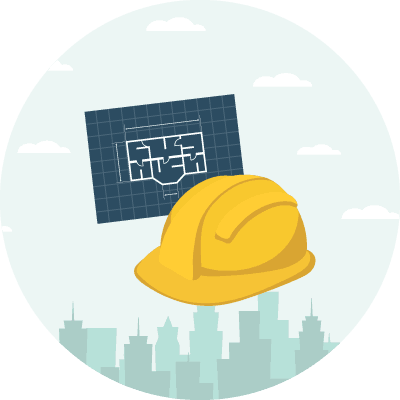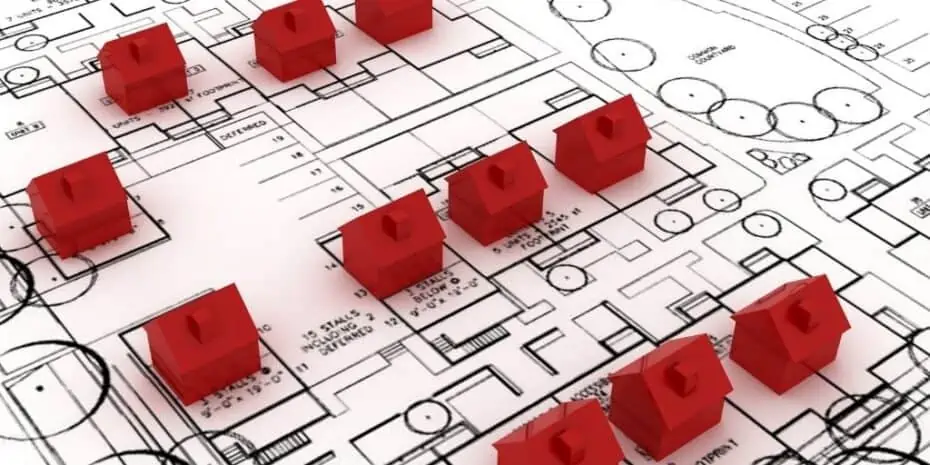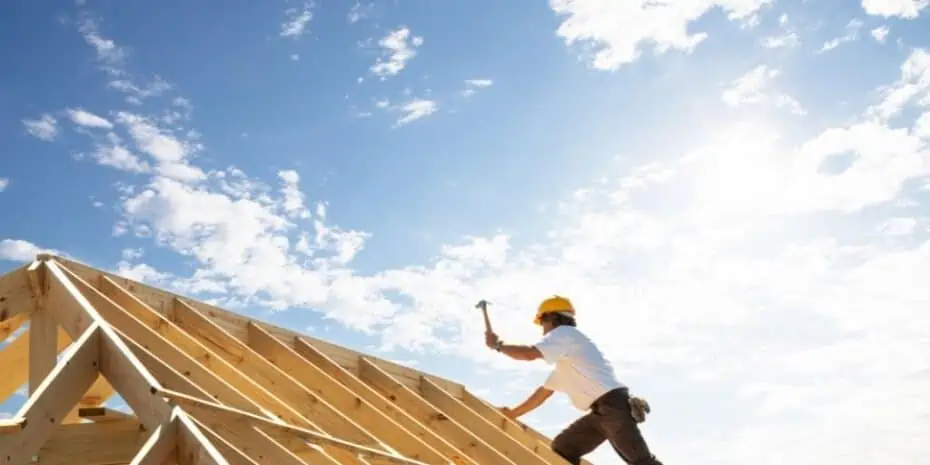What Is a Real Estate Developer?
What Does a Real Estate Developer Do?
A real estate developer or property developer designs and develops the highest and best use for a particular piece of raw land. They take on a wide array of projects, including residential (such as single-family residences and apartment buildings), commercial (such as shopping centers), and mixed-use developments[1].
While most developers develop raw land, some may also undertake renovation or restoration of old property or one that is poorly maintained or abandoned.
Among their responsibilities is to find the right plot of land to develop. To do so, they will invite investors to finance the project, hire professionals to undertake a feasibility study on that land[2], commission a design team, and choose the builders who will construct the structures and develop the physical features of that land.
Some professionals that developers look for include[3]:
- Land surveyors (for the site’s physical characteristics, features, and boundaries).
- Architects (to conceptualize and design the overall master plan of the project).
- Civil and geotechnical engineering (to plan for access, utilities, water supply, drainage, and other essential infrastructure).
- Attorneys (especially land use attorneys to ensure the project follows local guidelines and zoning laws).
- Building contractors (to construct buildings and other structures).
- Property managers for rentals (to administrate the property, such as marketing to tenants, drawing up leases, charging rent, maintaining the property, resolving disputes, and others).
- Real estate agents (to promote and sell the developed land).
Developers are also responsible for securing permits from the local government, such as the city and/or county, so the proposed development follows zoning, landscaping, and other conditional use requirements[4].
Who Can Become a Real Estate Developer?
Most real estate developers are business entities instead of a single individual because of the prohibitive costs and liabilities[5] that come with designing and developing a parcel of land. Independent developers are not unheard of, but they usually have considerable experience and clout in the industry.
Real estate developers work with different people and professionals, so they also tend to build a huge network of interrelated fields in the construction industry, particularly in architecture, engineering, and design. Developers nurture these connections, and they will often turn to these partners in any new project before hiring someone new.
Developers also have a good understanding of the current economy and the local real estate market. They often employ experts in several related disciplines, such as geology, law, and finance. Real estate developers are always on the lookout for land that can be developed, so they also study population movement and trends.
BY THE NUMBERS: Most banks and lending institutions in the U.S. allow real estate developers to borrow anywhere between 60 to 80 percent of the total project capital.
Source: Millionacres
Real Estate Developer vs. Real Estate Builder: What’s the Difference?
Many people confuse the role of a developer and a real estate builder. A developer is in charge of the “bigger picture” of land development, such as financing, obtaining permits, planning, and designing the final product. Builders, meanwhile, are in charge of physically constructing the structures and features of the developed land.
In a nutshell, here are the roles of a developer versus a builder.
Real Estate Developer
- Scouts for and finds raw land or older buildings with potential for development or redevelopment[6].
- Obtains financing for the development, either by making a loan or selling bonds to investors.
- Hires subcontractors, such as builders, engineers, and designers.
- Undertakes feasibility studies for that land, using surveys and other data.
- Secures permits from the state, county, or city.
- Draws up a design for the overall development.
- Manages the property by charging rent and maintaining common areas.
Real Estate Builder
- Constructs homes and buildings in multiple locations and different markets[7].
- Follows architectural design and policies.
- Lays the foundation and completes the framing for buildings.
- Showcases floor plans, interior, and exterior styles, and upgrades.
- Works directly with buyers for the new home construction or renovation of an existing property.
There are two main types of residential builders[8]: production and custom. Production builders work on a predetermined range of buildings. Developers use a production builder if they are developing land for a residential area where the houses are generally identical, saving time and money.
Meanwhile, custom builders can build structures from scratch every time. They base their process on the customer’s specifications, lifestyles, needs, and budget. Custom builders are more expensive than production builders, and their work often takes longer.
Takeaways
- A real estate developer finds raw land or older buildings and designs or redesigns the highest and best use for that property, whether residential, commercial, or mixed-use.
- A real estate developer works with lenders and investors to raise money to fund a development project. They are also responsible for acquiring permits, hiring pertinent experts to study, design, and build the project, and managing the property.
- Most developers are business entities, but some are independent with considerable experience in the industry.
- Real estate developers are not builders; developers design, while builders build the physical structures while following the developer’s plan.
Sources
- Folger, J. (2021.) Challenges in Real Estate Development. Investopedia. Retrieved from: https://www.investopedia.com/ask/answers/100214/what-are-some-challenges-real-estate-development.asp
- Esaijan, J. (n.d.) The Land Development Process In 6 Steps. Fortune Builders. Retrieved from: https://www.fortunebuilders.com/raw-land-investing/
- Gower, A. (n.d.) How To Finance A Real Estate Development Project. Grower Crowd. Retrieved from: https://gowercrowd.com/real-estate-syndication/finance-development
- Vandenboos, K. (2020.) Real Estate Entitlements — Everything Developers Need to Know. Millionacres. Retrieved from: https://www.millionacres.com/real-estate-basics/real-estate-terms/real-estate-entitlements-everything-developers-need-know/
- BuildingAdvisor. (n.d.) TYPICAL SITE DEVELOPMENT COSTS. Retrieved from https://buildingadvisor.com/buying-land/budgeting/typical-site-development-costs/
- Dunn, A. (2020.) How to Become a Real Estate Developer. Lending Tree. Retrieved from: https://www.lendingtree.com/home/mortgage/how-to-become-a-real-estate-developer/
- California Land Development. (n.d.) Developer and Builder: Who does what? Retrieved from: https://californialanddevelopment.com/blog-posts/developer-and-builder-who-does-what/
- NewHomeSource. (n.d.) Production Versus Custom Home Builders: What’s the Difference? Retrieved from https://www.newhomesource.com/learn/custom-or-production-builder-right-for-you/








